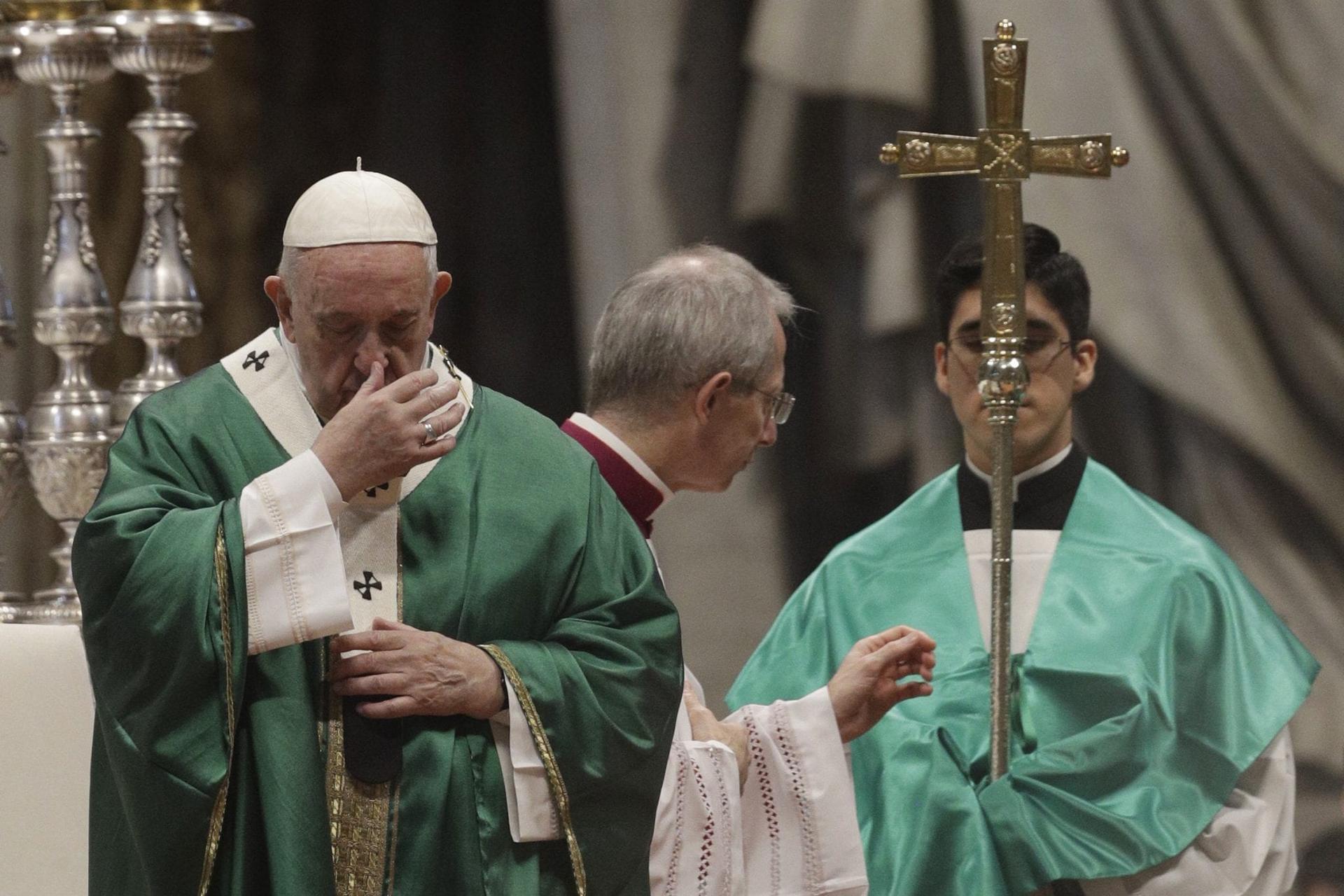ROME – Pope Francis on Sunday compared the Bible to a “love letter” from God to humanity, and said that those who follow Jesus should read it daily, keeping the Gospel at hand “on our cell phones,” being open to His word and not just going to Him with some “rote prayers.”
“To follow Jesus, mere good works are not enough; we have to listen daily to his call,” Francis said. “He, who alone knows us and who loves us fully, leads us to push out into the depth of life.”
“That is why we need His word: So that we can hear, amid the thousands of other words in our daily lives, that one word that speaks to us not about things, but about life,” he said.
Francis’s words came as he was celebrating Mass in St. Peter’s Basilica for the first Day of the Word of God, entrusted to the whole Church by the pontiff with his document Aperuit illis, released last year.
RELATED: Pope prepares to celebrate first Sunday of the Word of God on Jan. 26
Most of his homily turned around a passage from the Gospel of Matthew read in Catholic churches around the world this Sunday. This text, in which Jesus calls on two of his apostles to be “fishers of men,” the pope said, is helpful to know “how, where and to whom,” Jesus began to preach.
Jesus, Francis said, came to speak with everyone, in his own words and through his own life. He began his ministry with a “very simple phrase: ‘Repent, for the kingdom of heaven is at hand.’”
This, he said, is the main message of all of Christ’s sermons: That God is near.
“The One who dwells in heaven has come down to earth; he became man,” Francis said. “He has torn down walls and shortened distances. We ourselves did not deserve this: He came down to meet us.”
“He wants to stay with us and give us the beauty of life, peace of heart, the joy of being forgiven and feeling loved,” he said. Understanding this, Francis argued, allows for the understanding of his first demand: “repent,” meaning, “change your life.”
“The time when you lived for yourself is over; now is the time for living with and for God, with and for others, with and for love,” he said.
Francis said the Word of God is both encouraging and consoling, but challenging, freeing humanity from the bondage of selfishness and urging it to conversion, having the power of leading people out of darkness and into light.
The pope spoke about “where” Jesus began preaching, on the road by the sea, described in the Gospel as the “Galilee of the nations,” which Francis defined as “the border region, from a periphery,” instead of beginning from the temple of Jerusalem. The “land beyond the Jordan,” he said, was home to peoples from all nations, languages and cultures, not the place to find “the religious purity of the chosen people.”
“Here there is a message for us: The word of salvation does not go looking for untouched, clean and safe places,” Francis said. “Instead, it enters the complex and obscure places in our lives. Now, as then, God wants to visit the very places we think he will never go.”
Yet, he said, it’s often us who close the door to His word, approaching the Lord with “some rote prayers,” afraid of letting his truth “stir our hearts.”
Regarding the “to whom” did Jesus speak when he began his public ministry, Francis underlined that they were fishermen, known today as the apostles Peter and his brother Andrew. The weren’t chosen for their abilities or because they were devout people at prayer in the temple, but “ordinary working people.” And he spoke to them in a language they would understand, changing their lives “on the spot.”
Closing his homily, he asked for Catholics to read the Bible daily, beginning with the Gospel, to discover that God is close and “he dispels our darkness.”
Follow Inés San Martín on Twitter: @inesanma
Crux is dedicated to smart, wired and independent reporting on the Vatican and worldwide Catholic Church. That kind of reporting doesn’t come cheap, and we need your support. You can help Crux by giving a small amount monthly, or with a onetime gift. Please remember, Crux is a for-profit organization, so contributions are not tax-deductible.














